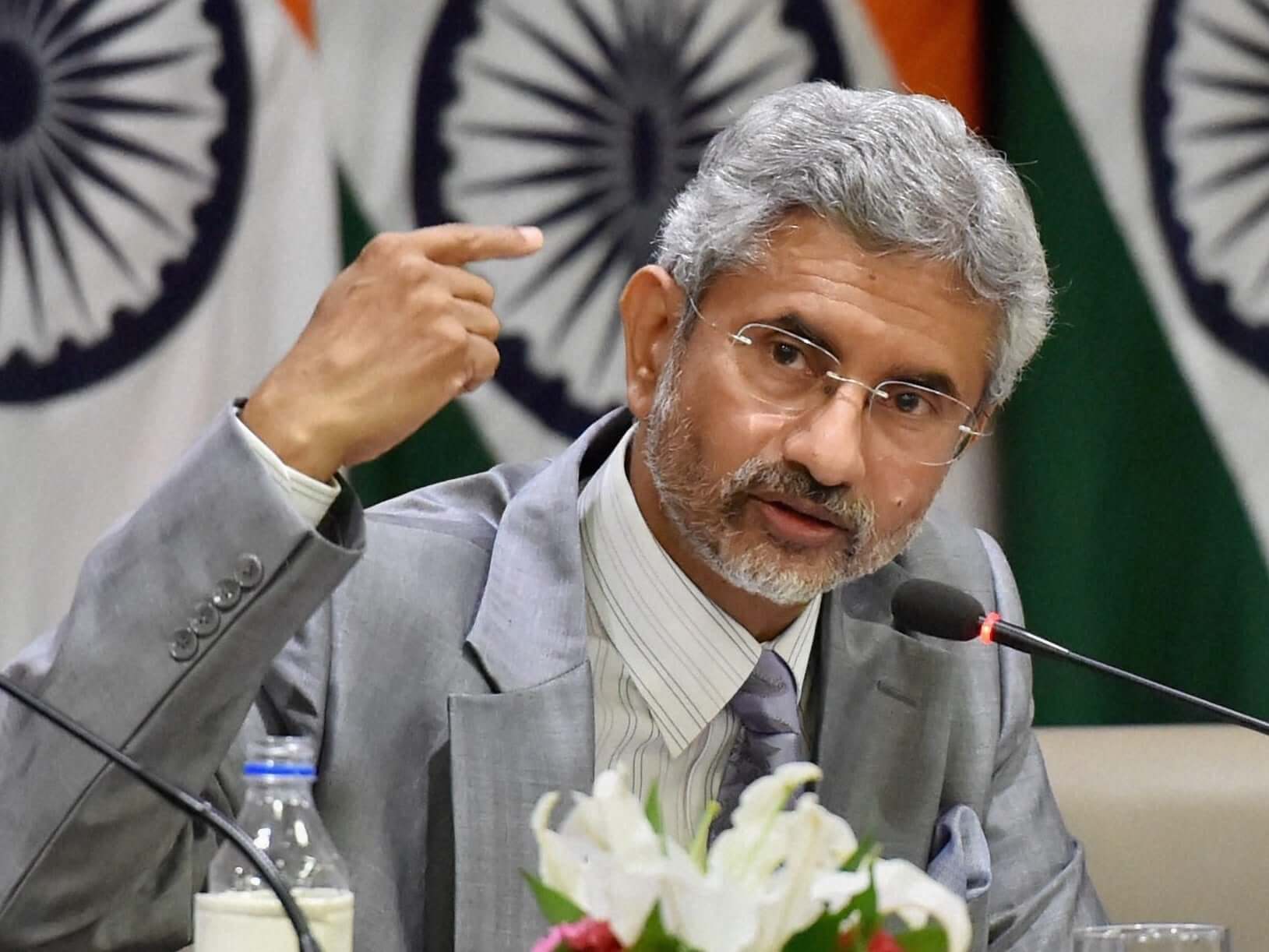Indian External Affairs Minister S. Jaishankar once again defended India’s decision to purchase discounted Russian oil in spite of Western threats and criticism, saying it is his “moral duty” to get the “best deal” for the country. In fact, India’s decision to prioritise its interest has had somewhat of a knock-on effect across South Asia, with many of its neighbours praising its independent foreign policy.
Speaking to the Indian community in Bangkok, where he is scheduled to attend the Ninth India-Thailand Joint Commission Meeting, Jaishankar said India’s per capita income is just $2000, making it difficult for most to afford the unreasonably high energy prices offered elsewhere.
Jaishankar addressed criticism by several Western powers about India purchasing oil from Russia despite its military aggression in Ukraine by highlighting that Middle Eastern countries, which were traditional suppliers of oil to Asia, had diverted their exports to Europe to help it reduce its dependency on Russian oil and gas. This prompted India to turn to alternate fuel sources to “cushion the impact of the high energy prices.”
"We have been very open & honest about our interest. I have a country with per capita income of $2000, these are not pple who can afford higher energy prices. It's my moral duty to ensure best deal",says EAM Jaishankar on India importing Russian crude oil. pic.twitter.com/REH3Fg1VkS
— Sidhant Sibal (@sidhant) August 16, 2022
Moreover, he highlighted that the United States (US) had understood India’s position on the issue and “moved on.” In this regard, he reiterated, “India is open about its interests, wants the best deal.”
He further stressed that India is not defensive about the decision and is instead honest and open. Hence, he said that while countries may not appreciate the decision, as India has laid out its interests in a “very direct manner” and the world has accepted it “as reality.”
In fact, this is not the first time Jaishankar has spoken out in defence of India’s decision to purchase Russian oil. At the Raisina Dialogue in April, he took aim at Europe’s hypocrisy for pressuring India to take a stand on the Ukraine war.
In the same month, Jaishankar defended India’s position in a 2+2 Ministerial meeting in Washington. Responding to US Secretary of State Antony Blinken’s plea for India to not procure additional supplies from Russia, Jaishankar said Blinken should instead focus on Europe, which purchases more oil from Russia in an “afternoon” than India does in a month.
Pleased to speak at @GLOBSEC 2022 Bratislava Forum.
— Dr. S. Jaishankar (@DrSJaishankar) June 3, 2022
Animated discussion, reflecting a perspective from India and the Indo-Pacific.
📹: https://t.co/lSY1VuJlaW pic.twitter.com/4SgdXSg91r
In a similar vein, at the GLOBSEC 2022 Bratislava Forum in Slovakia in June, the EAM rhetorically asked: “India buying Russian oil is funding the war … Tell me is that buying Russian gas not funding the war?”
India’s reliance on Russian oil has shot up significantly since February, with imports surging to 950,000 barrels per day in June, over 50 times the number in April. Moreover, in May, Russia became India’s second-largest supplier of oil, overtaking Saudi Arabia.
EAM Jaishankar on importing of Russian oil by India: we don't send people, go buy Russian oil, we send people to buy oil. You buy the best oil in the market. So I don't think, I would attach political messaging to that. https://t.co/sNvdm7tV09
— Sidhant Sibal (@sidhant) June 3, 2022
Several other South Asian countries have sought to follow India in securing a favourable deal for discounted Russian oil to mitigate surging energy prices. On Tuesday, Bangladesh’s state media agency reported that Prime Minister Sheikh Hasina had directed authorities to “find a way” to purchase discounted oil from Russia like India. Planning Minister MA Mannan said, “Russia says they will go to currency swap. We may have to negotiate with Russia and find out a policy.”
Reports suggest that the Russian state-owned Rosneft Oil Company has offered to provide refined oil to Bangladesh. However, the price at which the oil is being offered has not been confirmed.
Despite being part of the Quad, India sustained pressure from the US and bought discounted Russian oil to provide relief to the masses. This is what our govt was working to achieve with the help of an independent foreign policy.
— Imran Khan (@ImranKhanPTI) May 21, 2022
1/2 pic.twitter.com/O7O8wFS8jn
Likewise, Sri Lanka in May purchased 90,000 metric tonnes of crude oil from Russia for $72.9 million, allowing it to restart its only oil refinery. Thereafter, Prime Minister Ranil Wickremesinghe said in June that he was ready to return to Russia to mitigate the ongoing fuel crisis. He reiterated this interest in July amid reports that fuel in the country had dropped below 4,000 tonnes.
Meanwhile, in Pakistan, fuel subsidies have been recently withdrawn as a precondition to a bailout deal with the International Monetary Fund, resulting in a sharp rise in energy prices.
Former Pak PM Imran Khan plays out video clip of India's foreign minister Dr S Jaishankar during his mega Lahore Rally on Saturday, pointing out his remarks how India is buying Russian oil despite western pressure. Says, 'yeh hoti hai Azad Haqumat' pic.twitter.com/tsSiFLteIv
— Sidhant Sibal (@sidhant) August 14, 2022
To this end, former Prime Minister Imran Khan applauded India’s decision to purchase Russian oil despite threats from the US. On Sunday, during a rally marking Pakistan’s 75th independence day, he played a video of Jaishankar at the Bratislava Forum, declaring, “This is what you call an independent country.”
Khan has on multiple occasions praised India for its “independent foreign policy,” both while he was PM and once he was ousted from power, saying India has “sustained pressure from the US” and procured discounted Russian oil “to provide relief to the masses” despite being a key strategic ally and member of the Quad.

